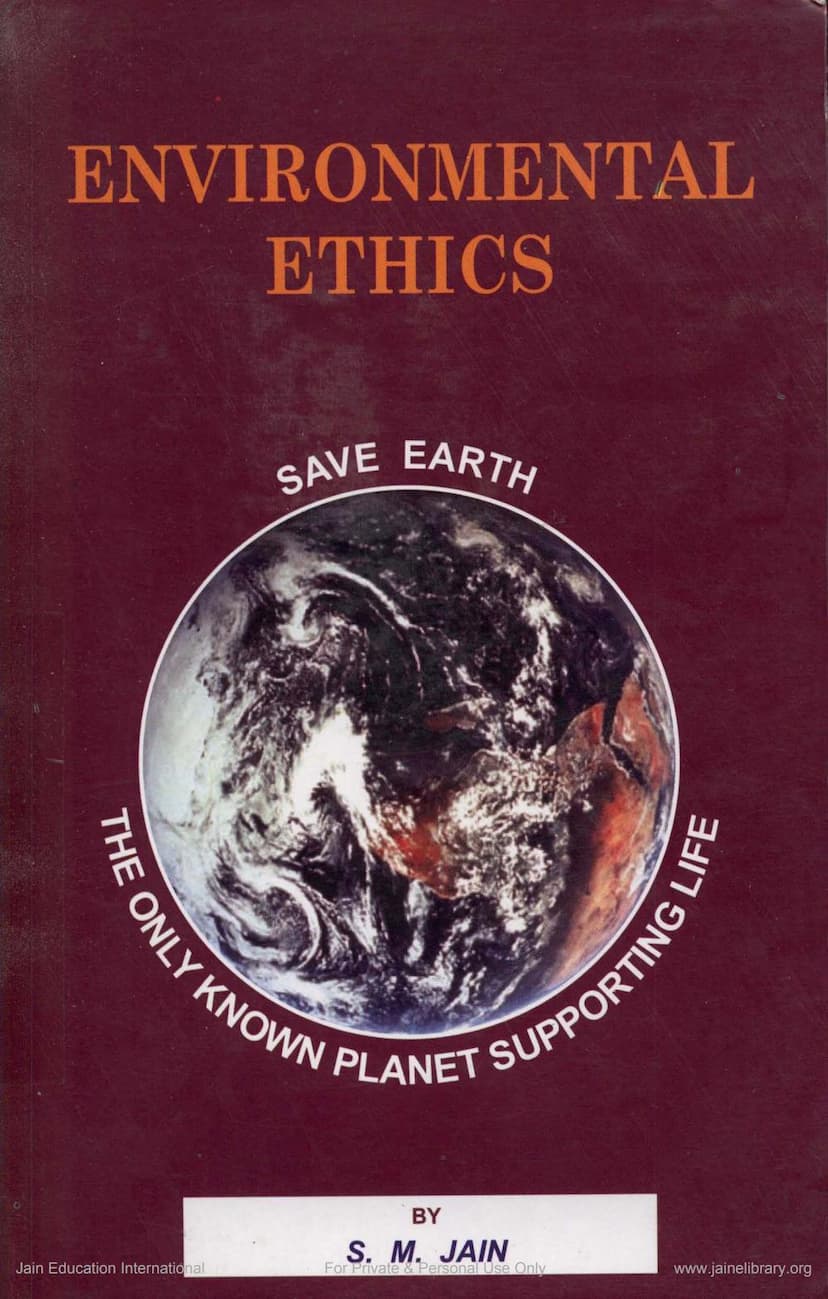Environmental Ethics
Added to library: September 1, 2025

Summary
Here's a comprehensive summary of S.M. Jain's book "Environmental Ethics," based on the provided text:
Overall Theme and Author's Background:
"Environmental Ethics" by S.M. Jain, a retired forest officer, is a call for a fundamental shift in human behavior and societal paradigms to address the escalating environmental degradation. Drawing upon his extensive experience in forestry and environmental management, Jain argues that the current path of unchecked population growth and rampant consumerism is leading humanity towards an irretrievable crisis. The book advocates for a return to core principles of symbiosis (mutualism) and rationality as the foundation for a sustainable and harmonious existence with nature.
Key Arguments and Concepts:
-
The Interconnectedness of Environment:
- The book emphasizes that the environment is a complex, composite system where all constituents, both animate and inanimate, are interdependent. Man is part of this system, not its master.
- Human actions have shifted the relationship with nature from symbiotic to predatory, driven by an anthropocentric and greedy outlook.
-
The Twin Evils: Population Explosion and Consumerism:
- Jain identifies population explosion and galloping consumerism as the primary drivers of environmental degradation.
- Population Growth: Increased numbers lead to greater demand for food, water, and resources, putting immense pressure on the earth's carrying capacity. This results in over-exploitation of soil, depletion of water sources, and increased waste generation.
- Consumerism: Fueled by modern advertising and a desire for material comforts, consumerism drives unsustainable consumption patterns, leading to the rapid depletion of both renewable and non-renewable resources. The current economic models often equate development with higher consumption levels, creating a self-destructive cycle.
-
The Core Principles:
- Symbiosis/Mutualism: This is presented as the fundamental principle for environmental preservation. It emphasizes cooperation and interdependence among all living beings and between living beings and their physical environment. The book provides numerous examples from nature and human society to illustrate this principle, including the human body, ecosystems, and even subatomic particles.
- Rationality: As the most evolved species with superior reasoning abilities, humans are expected to act rationally. This means understanding cause and effect, making decisions that benefit all constituents of the environment, and avoiding harmful, superstitious, or selfish behavior. Jain critiques the rise of superstitions, blind faith, and irrational practices that have overshadowed rational thought and led to environmental damage.
-
The Forest-Based Lifestyle as a Solution:
- Jain advocates for a return to a forest-based lifestyle, drawing inspiration from ancient texts that describe plants as "Kalpavrikshas" (benevolent trees).
- This lifestyle emphasizes minimal consumption, sustainable use of resources, and a return to cottage industries that are less polluting and more labor-intensive, creating employment opportunities.
- He highlights the nutritional value of forest seeds and products, suggesting they can provide a more sustainable and healthier food source than conventional agriculture.
- Forests are presented as vital for climate regulation, soil and water conservation, and providing a natural shield against environmental calamities.
-
Critique of Modern Practices:
- Agriculture: The book criticizes modern, intensive agriculture for its reliance on chemical fertilizers, pesticides, and excessive irrigation, which pollute soil, water, and air, and lead to soil degradation and loss of biodiversity.
- Industry: Industrialization, while bringing progress, has also exacerbated pollution and fueled consumerism. Jain points out the negative impacts of industrial emissions, effluents, and waste, including nuclear power plants and chemical industries.
- Superstition and Irrationality: Jain strongly criticizes the persistence of superstitions, blind faith, and irrational practices, even among educated individuals. He argues that these detract from rational thought, hinder progress, and often lead to the exploitation of people and further environmental damage (e.g., rituals involving animal sacrifice or wasteful ceremonies).
- Population Control: He stresses the urgent need for compulsory population control measures, arguing that voluntary family planning is insufficient given the current societal attitudes and resource scarcity.
-
The Five Vows of Jainism as a Framework:
- The book draws upon the principles of Jainism, particularly the five vows (Ahimsa - non-violence, Satya - truthfulness, Achaurya - non-stealing, Aparigraha - non-possession/non-consumption, Brahmacharya - celibacy), as a practical framework for achieving a symbiotic and rational lifestyle.
- These vows are presented as antidotes to sensuous indulgence, greed, anger, and hypocrisy, which are seen as the root causes of environmental and social problems.
-
Call to Action:
- Jain urges for a radical shift away from the current anthropocentric and consumerist paradigm.
- He calls for stricter enforcement of environmental laws and the adoption of a global environmental ethic, potentially through empowered international bodies like the UN.
- The ultimate message is that survival depends on humanity embracing a cooperative, rational, and forest-based existence, prioritizing the well-being of the entire biosphere for present and future generations.
In essence, "Environmental Ethics" is a profound and urgent plea from an experienced forester and thinker to re-evaluate our relationship with the planet, emphasizing the interconnectedness of all life and advocating for a return to simple, rational, and symbiotic principles for the survival and well-being of all.